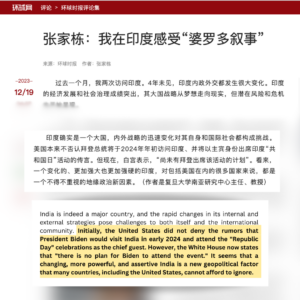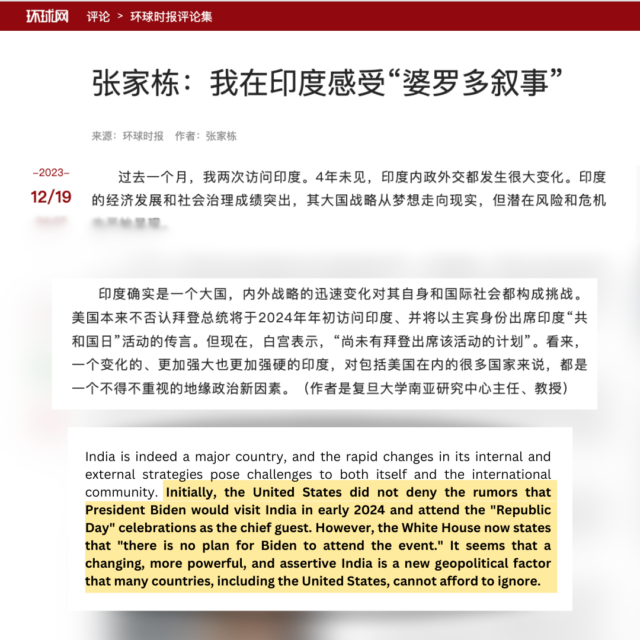NEW DELHI: China’s state-run Global Times isn’t exactly known for its praise of India or anything Indian, so when it deviated from the script by carrying an opinion piece on January 2, many Indians were taken by surprise and suspicion. Titled What I feel about the ‘Bharat narrative’ In India, the article published under the name of Zhang Jiadong, director of the Center for South Asian Studies at Fudan University, talks about India’s “great achievements in economic development and social governance”, rising diplomatic heft and goes on to praise PM Modi.
As it turns out, the piece was first published (on December 19, 2023) in Mandarin in the Chinese version of Global Times. It had a different tone and the language was rather cautious and there was a twist in the tale. It ended with the following lines: “The US initially didn’t deny rumours of President Biden’s potential visit to India in early 2024 and his attendance as the chief guest at India’s “Republic Day” celebrations. However, the White House now states that “there are no plans for Biden to attend the event. It appears that a changing, more powerful and assertive India is becoming a geopolitical new factor that many countries, including the United States, cannot ignore.”

These lines were completely missing from the English version of the article.
The Mandarin version, obviously targeted at the Chinese domestic audience, was to peddle the narrative that the United States, with whom India has good relations and China is at loggerheads, opted out of attending India’s Republic Day Parade in 2024. The idea was also to criticise the U.S., consistent with Chinese foreign policy.
China considers the U.S. as its main rival and the Chinese state media never miss out on any opportunity to criticise American policy. As Mandarin readership is dominant in China, articles are first published in the national language to spread negativity towards the U.S. or any nation (India in this case) that China doesn’t like.
But the English version of the ‘Bharat narrative’ turned out to be a self-goal. Mind your language, as it’s said!
















